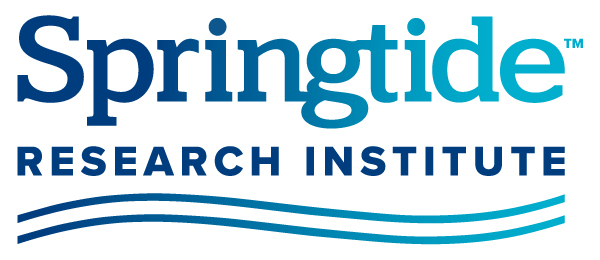New data shifts how we talk about young people’s religious lives: away from “affiliation” & “disaffiliation,” toward relationships, practices, beliefs
BLOOMINGTON, Minn. — A nationally representative study of 13-to-25-year-olds, collected from over 10,000 surveys and 150 interviews, reveals how outdated the obsession around “affiliated” and “unaffiliated” is when it comes to understanding the inner and outer lives of young people today.
The State of Religion & Young People 2020 confirms that young people today are experiencing record loneliness, and that they don’t trust the institutions that once helped them navigate questions of identity, community, and meaning. This lack of trust is true even for young people who tell us they are connected to traditional institutions.
Springtide findings reveal that 71% of young people consider themselves “religious,” but over half of young people in our study report having little to no trust in religious institutions. Affiliation—even showing up to a particular religious service—doesn’t necessarily equal believing, belonging, or trusting that institution.
Unaffiliated doesn’t mean what you would think either. Sixty percent of unaffiliated young people say that they are at least slightly spiritual, and over 1 in 5 tell us they attend religious services at least once a month. This is why terms like “affiliated” and “unaffiliated” don’t mean as much as they once did. They are insufficient for understanding the inner and outer lives of young people.
Affiliation Doesn’t Reveal Much; Relationships Do
What is more important than institutional affiliations? Relationships. As trust in institutions decline, trust in relationships (even relationships within institutions) remain important in the lives of young people for helping them navigate major life questions. Of young people ages 13–25 with no adult mentors, 24% say they never feel their life has meaning or purpose. But for those with even just one adult mentor, this number drops to 6%.
The need for relationships and expertise hasn’t changed. But in light of larger social factors and current events, the best ways to connect with young people and communicate expertise is shifting. Young people have a deep need for familiar connection amid a society increasingly glued together by transactional exchanges. To forge bonds of trust with young people amid changing realities, a new approach is needed. We call this new approach Relational Authority. It is a data-driven framework for having a lasting, positive influence in the lives of young people today. The five dimensions of Relational Authority are listening, transparency, integrity, care, and expertise.
The digital edition of The State of Religion & Young People 2020: Relational Authority is available now, for free on our website, thanks to a generous donation, and the print edition is available for a reduced rate. This 120-page report presents sociological context and terms, key findings, and a detailed, data-driven framework for responding to shifts in the cultural, religious, and social landscape. Dr. Josh Packard, Executive Director of Springtide Research Institute, is available for comment, conversation, or interviews. More details about this important study and additional resources can be found on Springtide Research Institute’s website, at www.springtidresearch.org.
###
Springtide Research Institute is a sociological research institute listening to the inner and outer lives of young people ages 13 to 25. Amplifying young people’s lived experiences through unbiased research and the generation of evidence-based actionable insights, we seek to help those who care about young people, care better.
Contact
Ellen Koneck
[email protected]
(507) 457-7933





